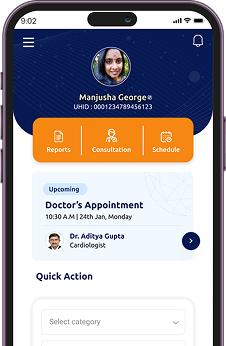Appendix cancer is a rare type of cancer that starts in the cells of the appendix, a small organ attached to the large intestine. Although it’s uncommon, knowing about it is important because early detection can improve treatment outcomes. In this article, we’ll break down the symptoms, causes, risk factors, and treatment options for appendix cancer in a way that’s easy to understand.
What is Appendix Cancer?
Appendix cancer, or appendiceal cancer, happens when abnormal cells grow uncontrollably in the appendix, forming tumors. While the appendix’s role in the body isn’t fully understood, cancer in this organ can spread to other areas, causing serious health problems.
There are several types of appendix cancer, including:
Carcinoid Tumors – Slow-growing tumors that develop from hormone-producing cells.
Mucinous Adenocarcinoma – A more aggressive cancer that produces mucin, which can spread throughout the abdomen.
Signet Ring Cell Adenocarcinoma – A rare and aggressive form of cancer.
Goblet Cell Carcinoid (GCC) – A mix of carcinoid and adenocarcinoma features, making it unique.
Symptoms of Appendix Cancer
In its early stages, appendix cancer may not cause any noticeable symptoms, making it hard to detect. However, as it progresses, people may experience:
Abdominal pain or discomfort
Bloating or swelling in the abdomen
Changes in bowel habits
Unexplained weight loss
Nausea and vomiting
Loss of appetite
Fluid buildup in the abdomen (ascites)
Sometimes, appendix cancer is found by accident during surgery for appendicitis.
What Causes Appendix Cancer?
Doctors aren’t entirely sure what causes appendix cancer, but certain factors may increase the risk:
Age – It’s more common in people over 50.
Gender – Some types, like carcinoid tumors, are more common in women.
Genetics – Changes in DNA may play a role in cancer development.
Family History – A history of gastrointestinal cancers could increase your risk.
Smoking – Some studies suggest smoking might contribute to appendix cancer.
How is Appendix Cancer Diagnosed?
Since appendix cancer is rare and its symptoms are vague, diagnosing it can be tricky. Doctors may use the following tests:
Imaging Tests – CT scans, MRIs, and ultrasounds help spot abnormal growths.
Biopsy – A tissue sample is taken to check for cancer cells.
Blood Tests – These may help detect tumor markers.
Exploratory Surgery – In some cases, the cancer is discovered during surgery for suspected appendicitis.
Treatment Options
Treatment for appendix cancer depends on the type, stage, and overall health of the patient. Standard treatment options include:
Surgery:
Appendectomy – If the cancer is found early, removing the appendix may be enough.
Right Hemicolectomy – If cancer has spread, part of the colon and nearby lymph nodes may need to be removed.
Cytoreductive Surgery (CRS) – A more complex surgery to remove tumors from the abdomen, often followed by HIPEC.
Hyperthermic Intraperitoneal Chemotherapy (HIPEC):
A special treatment where heated chemotherapy drugs are delivered directly into the abdomen after surgery to kill any remaining cancer cells.
Systemic Chemotherapy:
If cancer has spread, intravenous chemotherapy may attack cancer cells throughout the body.
Targeted Therapy:
Some drugs target specific genetic mutations in cancer cells, helping slow their growth.
Radiation Therapy:
It is not commonly used but may be an option in advanced cases.
Can Appendix Cancer Be Prevented?
There’s no guaranteed way to prevent appendix cancer, but some lifestyle choices might help lower the risk:
Eat a Healthy Diet – A diet rich in fruits and vegetables supports overall well-being.
Avoid Smoking – Reducing tobacco use lowers the risk of many cancers.
Regular Check-ups – Routine health screenings can help with early detection.
Know Your Family History – If gastrointestinal cancers run in your family, talk to your doctor about early monitoring.
Final Thoughts:
Although appendix cancer is rare, it can have serious consequences if left undiagnosed. Awareness of the symptoms, risk factors, and treatment options can help you act early. If you have persistent abdominal discomfort or other unusual symptoms, don’t ignore them—consult a healthcare professional as soon as possible.
Spreading awareness about appendix cancer can lead to earlier diagnoses and better treatment outcomes for those affected by this rare but significant disease.
Help Spread Awareness!
Share this blog with your family and friends to learn about Appendix cancer prevention and early detection.
With VivaVel, Stay informed and stay healthy!






















